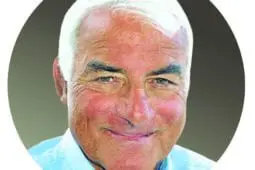The Field
The Little Things
Love in the Consulting RoomBarbara Fredrickson’s research on the biology of love and positivity demystifies our ideas about the role of intimacy, connection, and resilience in our... Read more
The Debate Over DSM-5: A Step in the Right Direction
A Step in the Right Direction: An Interview with Darrel RegierThe vice chair of the DSM-5 Task Force is bemused that the release of what was intended to be a more accurate and rigorously researched manual has raised such... Read more
The Debate Over DSM-5: A Step Backward
A Step Backward: An Interview with Allen FrancesAs the man responsible for the previous edition, the foremost critic of DSM-5 is perhaps the last person you’d expect to trash this latest, biggest version. Read more
Beyond Phrenology
Let’s Look at How the Brain Really WorksIf therapists are going to bring genuine insights—not just soundbites—from neuroscience into the practice of therapy, they need the nuanced, sophisticated... Read more
What Is This Thing Called Love?
A Whole New Way of Looking at ItMore than any other positive emotion, love resides within connections. It extends beyond personal boundaries to characterize the vibe that pulsates between and... Read more
Psychotherapy and the Affordable Care Act
Ecstasy in the Consulting RoomThroughout the fall, news about the landmark Affordable Care Act (ACA), designed to extend healthcare coverage to millions of the country’s currently... Read more
How Food Improves Mood
Bringing Nutrition into the Consulting RoomLearning even a little about nutrition and diet can greatly enhance therapists’ ability to help clients with mood problems. Read more
Rewriting the Story
Entering the World of the Abused ChildTherapists must offer abused children a different felt experience of who they are. Read more
Emotional First Aid
Looking Beyond the DSMIn Emotional First Aid, Manhattan psychologist Guy Winch provides an instructional manual for handling the bumps and bruises of life. Read more
The Next Big Step
What’s Ahead in Psychotherapy’s Fascination with Brain Science?Labeling behavior in fancy neurophysiological terms can make what we do sound more scientifically rigorous than the notoriously fuzzy language of... Read more
The Great Deception
We’re Less in Control Than We ThinkMost of us put much too much faith in the power of our conscious minds to bring about lasting change. Instead of looking up the higher branches of... Read more
Moving Beyond DSM-5
David Mays on the Future of PsychotherapyDavid Mays talks about his disappointment in how medications are currently used and prescribed, the changes he’s seeing taking place, and what those changes... Read more
Examining the Most Controversial Change in DSM-5
Gary Greenberg On The Bereavement ExclusionWhen examining the various changes made in DSM-5, Gary Greenberg finds the most controversial one to be the removal of the bereavement exclusion from the major... Read more
Responding to the Critics of DSM-5
Darrel Regier On Why Diagnostic Changes Were MadeDespite the number of criticisms it has incurred, there was a method to the so-called madness of DSM-5. Read more
What's The Value Of A Diagnostic Category In The DSM?
Gary Greenberg on the Role of Economic Factors in the Shaping of the DSMGary Greenberg deconstructs the DSM and how it affects the field and your practice. Read more
What's In A Brand?
What Campbell’s and Dr. Phil KnowFor therapists, traditional ways of getting the word out—an ad here, a few hints to colleagues there, even a fancy website—just won’t cut it anymore. In... Read more
Unless DSM more firmly joins the march toward biological psychiatry, it’s going to be left behind by NIMH. Read more
Currently, there are between 100 and 150 smartphone apps designed to supplement—and occasionally even replace—face-to-face psychotherapy. In fact, the... Read more
An alarming number of children and adolescents who walk into a psychiatrist’s office in the United States each year walk out with prescriptions for powerful... Read more
The Coaching Edge
Helping Our Clients Take Their Best ShotThere are advantages to integrating an in-depth understanding of traditional therapy with a more coaching-oriented style—but therapists shouldn't lose sight... Read more
While the “empty chair” was once identified as a popular Gestalt therapy technique, for many therapists today, faced with empty appointment hours... Read more
The American Psychiatric Association is scheduled to publish the much-delayed fifth edition of the Diagnostic and Statistical Manual (DSM) by May 2013. With... Read more
Fostering Moral Imagination
Empathy is a radical actIn a world where differences between people have become increasingly demonized, more than ever, the therapist's job is to help people expand their circle of... Read more
Psychotherapy's Greatest Debates
Assessing the State of the Art 2012The State of the Art, the Networker’s first-ever virtual conference, offered an opportunity for leaders in our field who disagree to debate each other... Read more
A Brief History of Psychotherapy
A Mosaic of the Psychotherapy Networker, 1982-2012Over the years, our front-of-the-book department has not only given readers plenty of tasty factoids to chew on, but also revealed how the seasons of the... Read more
The Alphabet Soup
Diana Fosha on the Convergence in Today’s TherapiesDiana Fosha talks about why so many acronymic therapies—ADEP, DBT, IFS, ACT—resemble each other, and what that says about the therapy field today. Read more
What Therapists Want
It’s Certainly Not Money or Fame!A close-up look at a 20-year, multinational study that captures the heart of therapists’ aspirations—and perhaps the soul of our professional identity. Read more
The Attuned Therapist
Does Attachment Theory Really Matter?In recent years, attachment theory, with its emphasis on early bonding, connection and relationship, has exerted as much influence over the field of... Read more
Therapy in the Round
Group Therapy Offers a Larger Arena for ChangeHow the skills of the group therapist differ from those of the individually-oriented practitioner. Read more
Telling It Like It Is
Donald Meichenbaum Doesn't Mince WordsLong an acerbic critic of the trendy and faddish, Don Meichenbaum, one of the founders of CBT, is still determined to separate myth from reality in the world... Read more























